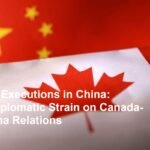Japanese Prime Minister Shigeru Ishiba has sharply criticized former U.S. President Donald Trump’s proposed reciprocal tariffs, calling the policy “illogical” and “difficult to comprehend,” given Japan’s status as one of the largest foreign investors in the United States. The remarks, delivered during a parliamentary session on Thursday, reflect growing anxiety in Tokyo over the potential fallout for Japan’s automotive industry, which employs 5.6 million workers domestically.
Tariffs Threaten Decades of Economic Partnership
Trump’s push for reciprocal tariffs—a policy aimed at imposing matching import duties on countries deemed to have “unfair” trade practices—has reignited fears of a trans-Pacific trade war. Japan, however, argues that the measures disregard its $600 billion in cumulative investments in the U.S., spanning manufacturing, technology, and infrastructure. Over 900 Japanese companies operate in America, supporting nearly 1.8 million U.S. jobs, particularly in states like Ohio, Indiana, and Kentucky, where automakers such as Toyota and Honda have major plants.
“Japan has long been a pillar of the U.S. economy, yet these tariffs treat us as adversaries,” Ishiba stated. “This move risks undermining a partnership built on mutual trust and shared growth.” Analysts note that Trump’s tariffs, if implemented, could target Japanese automobiles, machinery, and electronics—sectors central to Japan’s export-driven economy.
Automotive Sector on Edge
The automotive industry, which accounts for 20% of Japan’s manufacturing output and 8% of its workforce, faces existential concerns. Over 5.6 million Japanese jobs are tied to the sector, including roles in factories, supply chains, and R&D. Tariffs on Japanese vehicles, which currently face a 2.5% U.S. import duty, could spike to 25% under Trump’s proposal, mirroring earlier levies imposed on Chinese goods. Such a hike would force Japanese automakers to either absorb crippling costs—jeopardizing profitability—or pass expenses onto American consumers, potentially eroding market share.
“This isn’t just about Japan,” said Akio Toyoda, chairman of the Japan Automobile Manufacturers Association. “Higher prices for U.S. buyers and disrupted supply chains would harm both economies.” Workers in Japan’s auto hubs, like Aichi Prefecture, echoed these fears. “Our jobs depend on stable trade with America,” said Hiroshi Yamamoto, a union leader at a Toyota plant. “Political games threaten our livelihoods.”
Historical Echoes and Diplomatic Tensions
The tariff threat evokes memories of U.S.-Japan trade friction in the 1980s and 1990s, when Washington accused Tokyo of flooding markets with cheap exports. While Japan has since shifted toward high-value manufacturing and direct investment in the U.S., the specter of protectionism looms large. Prime Minister Ishiba emphasized that Japan’s current trade surplus with the U.S.—$70 billion in 2023—stems largely from American demand for Japanese machinery and vehicle parts, not “unfair practices.”
Critics argue that Trump’s approach overlooks the interconnectedness of modern supply chains. Over 50% of components in Japanese cars sold in the U.S. are sourced from American suppliers. Tariffs could disrupt this symbiosis, delaying production and inflating costs across industries.
Japan’s Counterstrategy: Diversification and Diplomacy
In response, Ishiba’s administration is pursuing a dual strategy: strengthening Asian trade networks while lobbying Washington for exemptions. Japan aims to fast-track agreements under the Comprehensive and Progressive Agreement for Trans-Pacific Partnership (CPTPP) and bolster ties with Southeast Asian nations to reduce reliance on the U.S. market. Simultaneously, officials are urging the Biden administration to reaffirm its commitment to “free and fair trade,” fearing a return to Trump-era unilateralism.
Domestically, the government plans to expand subsidies for automakers transitioning to electric vehicles (EVs) and invest $15 billion in battery technology to stay competitive. “We must innovate to survive,” said Economy Minister Yoko Kamikawa, announcing tax breaks for EV R&D.
Global Implications and Expert Warnings
Economists warn that escalating tariffs could destabilize global trade. Dr. Kenichi Kawasaki, a senior fellow at the Nomura Research Institute, noted, “The U.S. and Japan are anchors of the international economic order. Conflict between them would send shockwaves far beyond Asia.” Others highlight Japan’s vulnerability as exports comprise 30% of its GDP. While a weak yen has boosted competitiveness, prolonged trade strife could erase these gains.
Conclusion: A Test of Resilience
Prime Minister Ishiba’s rebuke underscores Japan’s precarious position in an era of economic nationalism. With its auto sector at a crossroads, the nation must balance diplomatic pragmatism with aggressive innovation. “We will defend our industries and workers,” Ishiba vowed, urging calm amid the uncertainty.
As the U.S. election approaches, Tokyo watches nervously. The outcome could determine whether two allies navigate a path to compromise—or collide in a costly trade war. For Japan’s auto workers and the millions tied to their success, the stakes have never been higher












